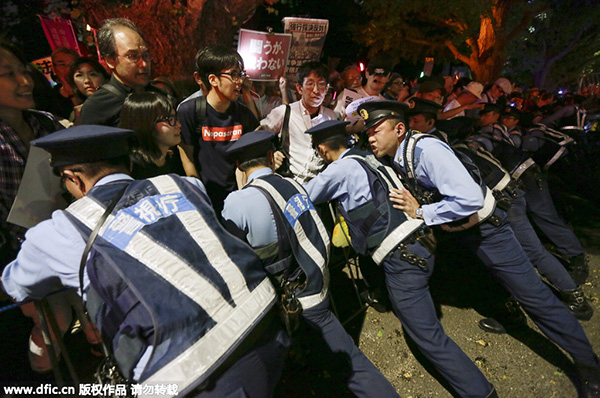Japan's controversial security legislation to take effect on March 29
(Xinhua) Updated: 2016-03-22 13:14
 |
|
Japanese policemen contain protesters as they demonstrate against Japan's controversial national security bills in front of Japan's parliament building in Tokyo, Japan, Sept 14, 2015. [Photo/IC] |
TOKYO - Japanese Prime Minister Shinzo Abe's cabinet made the decision on Tuesday that the controversial new security-related legislation will become effective on March 29, marking an overhaul of the country's exclusively defensive defense posture in about seven decades.
The Abe-led ruling coalition rammed the controversial bills through the parliament last year and enacted the legislation in September amid strong opposition from the Japanese public and academics due to its unconstitutionality.
The legislation allow the Japanese Self-Defense Forces (SDF) to engage in armed conflicts overseas and exercise the right to collective self-defense.
However, the Japanese war-renouncing constitution banned the SDF from exercising the right to collective defense.
Over 90 percent of the country's constitutional experts see the new legislation violating the supreme law and the enactment of the legislation triggered large scale of protests across the nation.
Analysts here said the prime minister would delay the framework for the SDF to carry out the enlarged tasks, with worries that the move would impact on the ruling bloc's campaign over the coming upper house election, which is key to Abe to launch a motion to amend the constitution.
On March 19, over 5,000 protesters rallied in downtown Tokyo opposing the security legislation.






